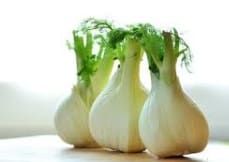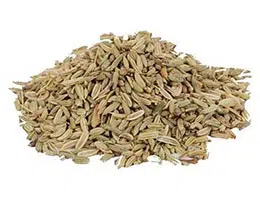 Fennel is a plant that belongs to the family group of umbellifers . With the scientific name Foeniculum vulgare , fennel is considered an aromatic herb due to its characteristics. It is native to the Mediterranean basin and its growth takes place in dry and poor soils in various places, such as fields, wild fields and even along roadsides.
Fennel is a plant that belongs to the family group of umbellifers . With the scientific name Foeniculum vulgare , fennel is considered an aromatic herb due to its characteristics. It is native to the Mediterranean basin and its growth takes place in dry and poor soils in various places, such as fields, wild fields and even along roadsides.
With stems up to 140 centimeters, fennel has split green leaves, small, yellowish flowers and an oblong fruit that contains the seeds. This herbaceous species is used in the field of medicine and gastronomy .
Its medicinal use dates back to ancient times. The Roman emperor Charlemagne , in the document known as “Capitulare de villis vel curtis imperii” , ordered the cultivation of various herbs for their properties and, in that group, he mentioned fennel.
Fennel is valued for being carminative (this group of plants favors the expulsion of gases found in the digestive tract) and diuretic (increases or favors the excretion of urine). That is why it is included in the treatment of gastrointestinal disorders, combined with other plants such as mint, cumin and peppermint . Regarding its aroma, it is compared to that of anise.
In cooking, the seeds , leaves , stems and bulb of fennel are used thanks to their somewhat sweet flavor and intense fragrance. The dried and ground seeds, for example, are used in breads and curry recipes.
The leaves and stems, meanwhile, are usually chopped to be used as a condiment . The fresh bulb, on the other hand, is used as an ingredient in various dishes or even in salads.
The fennel and carrot cream soup ; roasted fennel ; steamed fennel ; the fennel and arugula salad ; and fennel gratin with parmesan cheese are some of the recipes that can be made with this vegetable that is highly valued for its characteristics.
As with many other plants, fennel hides a series of benefits for our body that make it ideal to include in our diet . Among the medicinal species of the Mediterranean, it is one of the most important precisely because of the properties of its seeds, although these are not as well known.
 The first of the benefits of fennel seed is exclusive for women, since it helps reduce the pain of menstruation , which originates with the contraction of the uterus. To take advantage of this effect, a group of scientists from Iran determined that it is advisable to ingest about 30 milligrams of extract, a maximum of four times per day.
The first of the benefits of fennel seed is exclusive for women, since it helps reduce the pain of menstruation , which originates with the contraction of the uterus. To take advantage of this effect, a group of scientists from Iran determined that it is advisable to ingest about 30 milligrams of extract, a maximum of four times per day.
As mentioned in previous paragraphs, fennel has ideal properties to combat various digestive problems. In particular, its seeds are ideal for dealing with intestinal discomfort , thanks to its antispasmodic action. To do this, simply make an infusion using 5 grams per cup and cook it for approximately ten minutes. It is recommended not to drink more than two cups per day.
An infusion based on fennel seeds can also be good for treating bronchial cough, as it helps eliminate mucus . It is important to note that its consumption is not recommended for young children because one of its active ingredients is anethole , an aromatic compound that can cause nausea or vomiting.
On the other hand, fennel has certain uses that are not related to diseases. For example, it is ideal for treating halitosis quickly, simply consuming it after meals. It is also used to increase libido ; so much so that some speak of its seed as "the pearl of aphrodisiacs."
